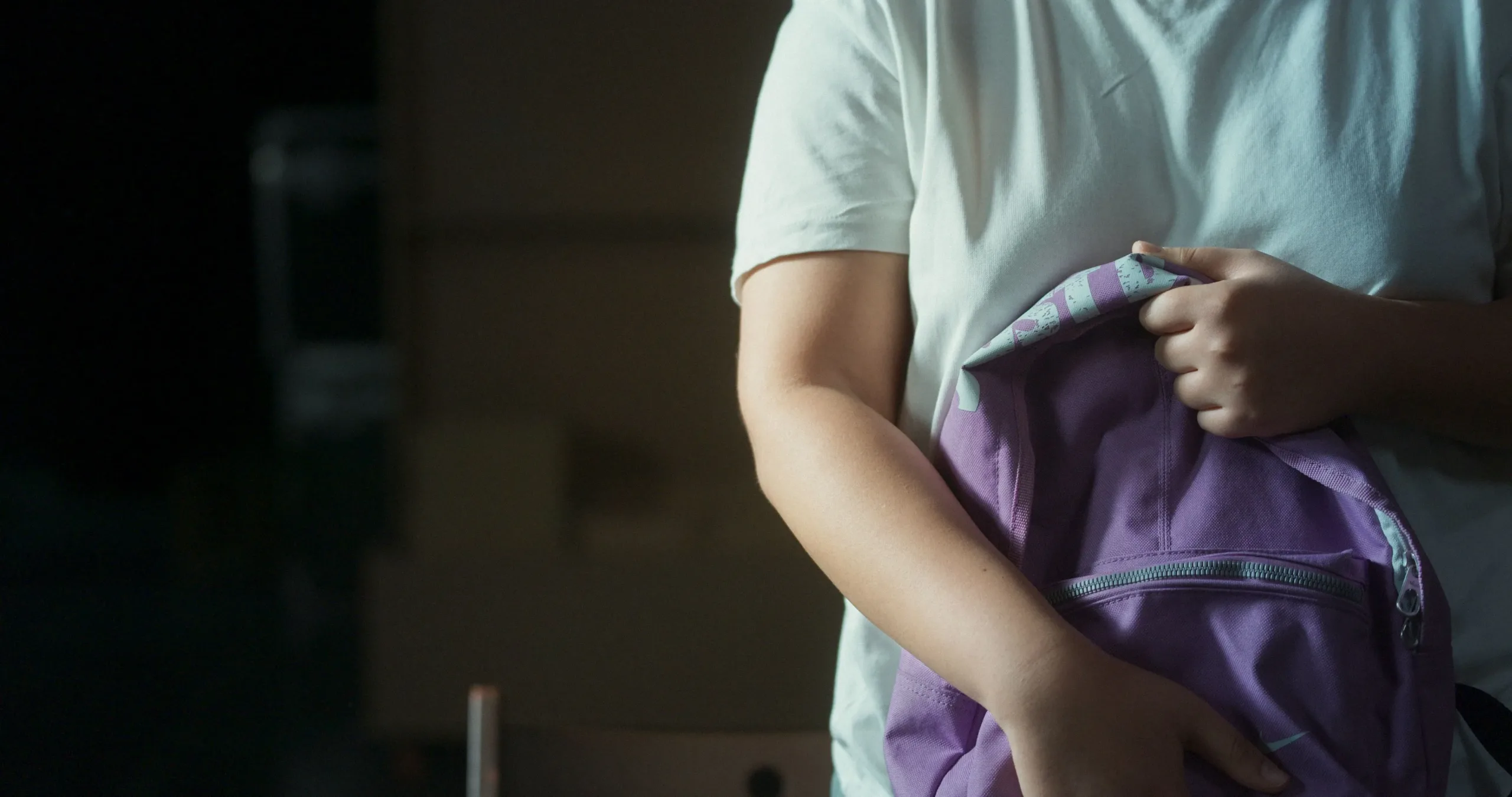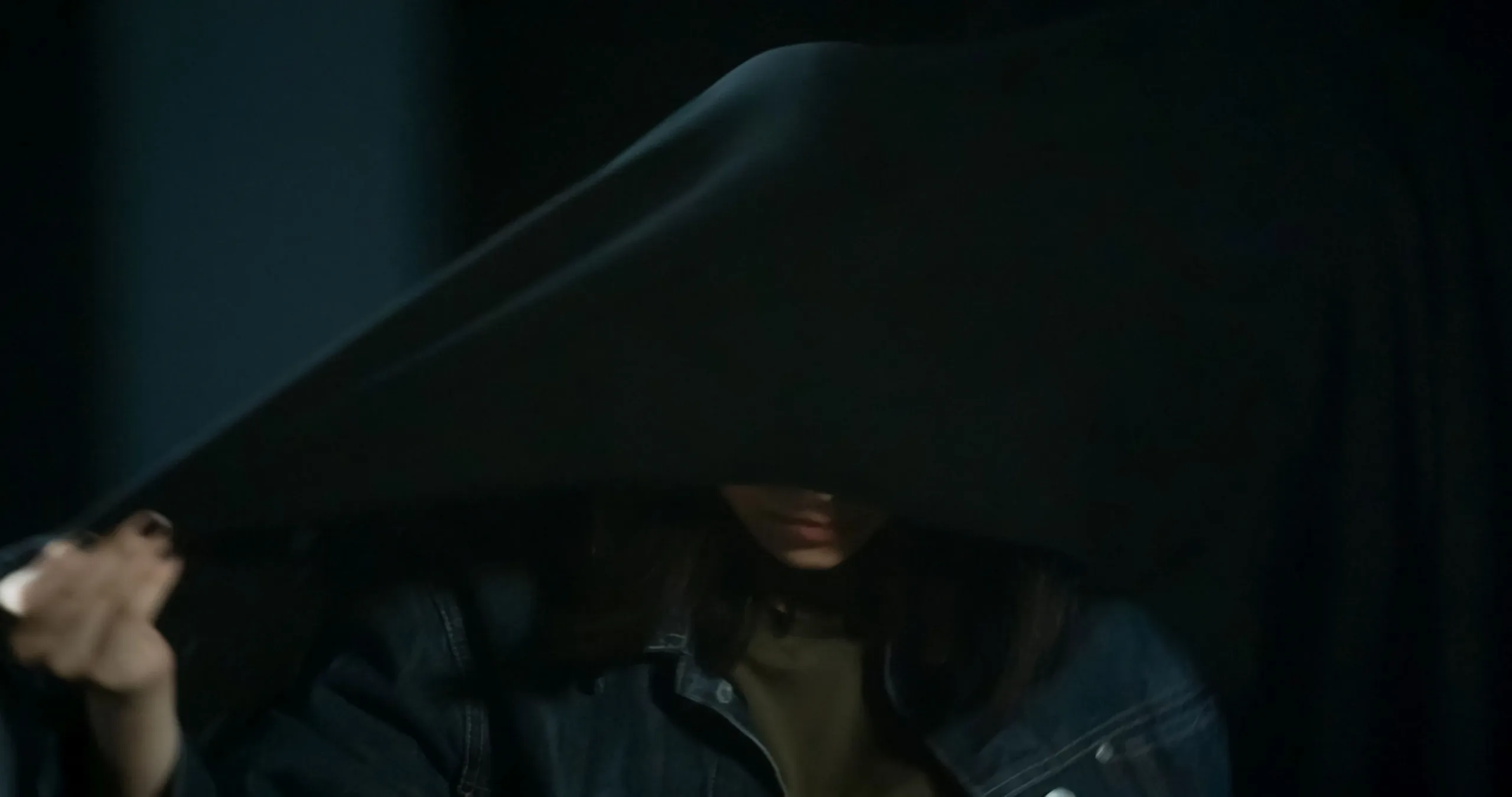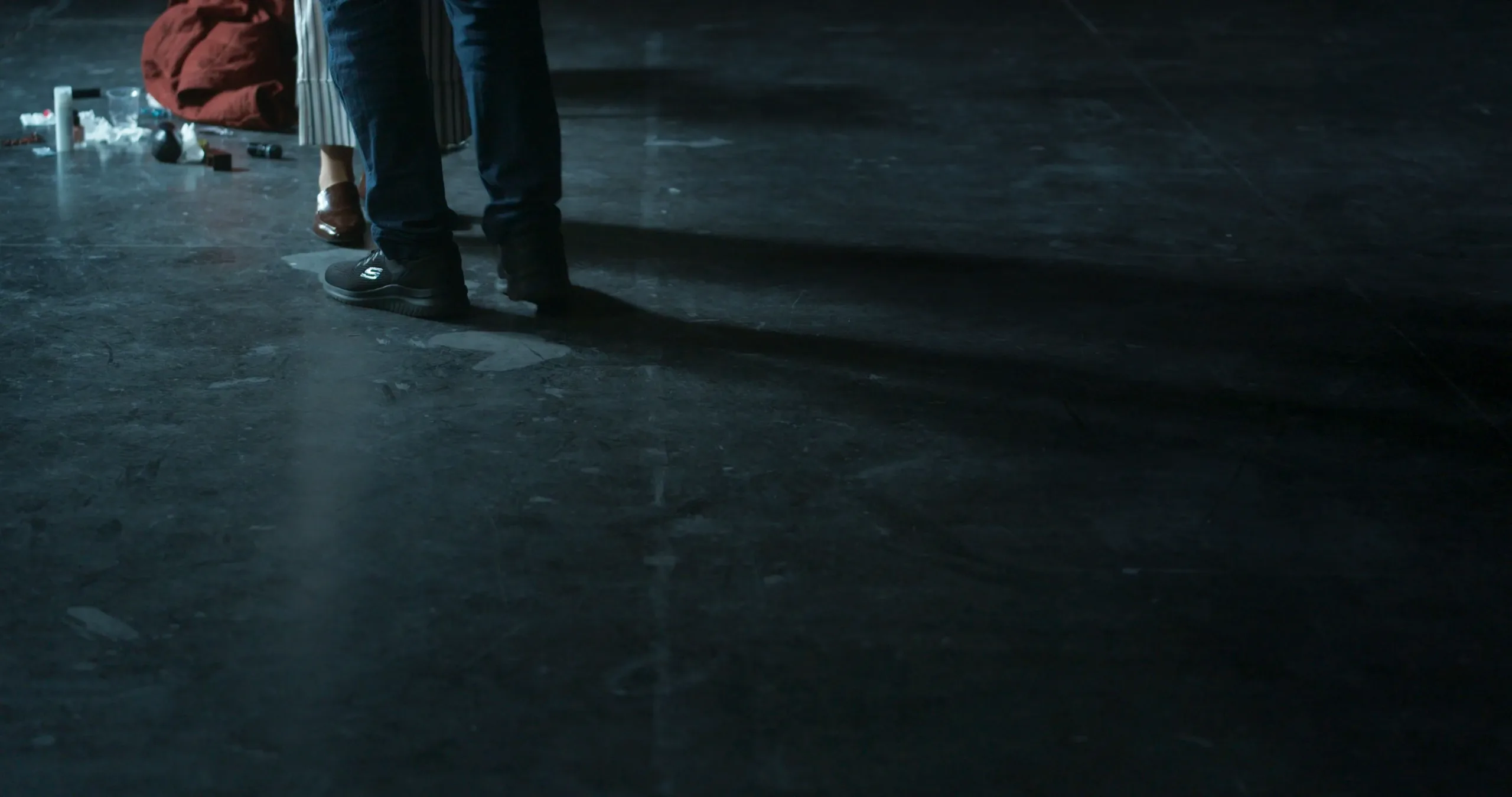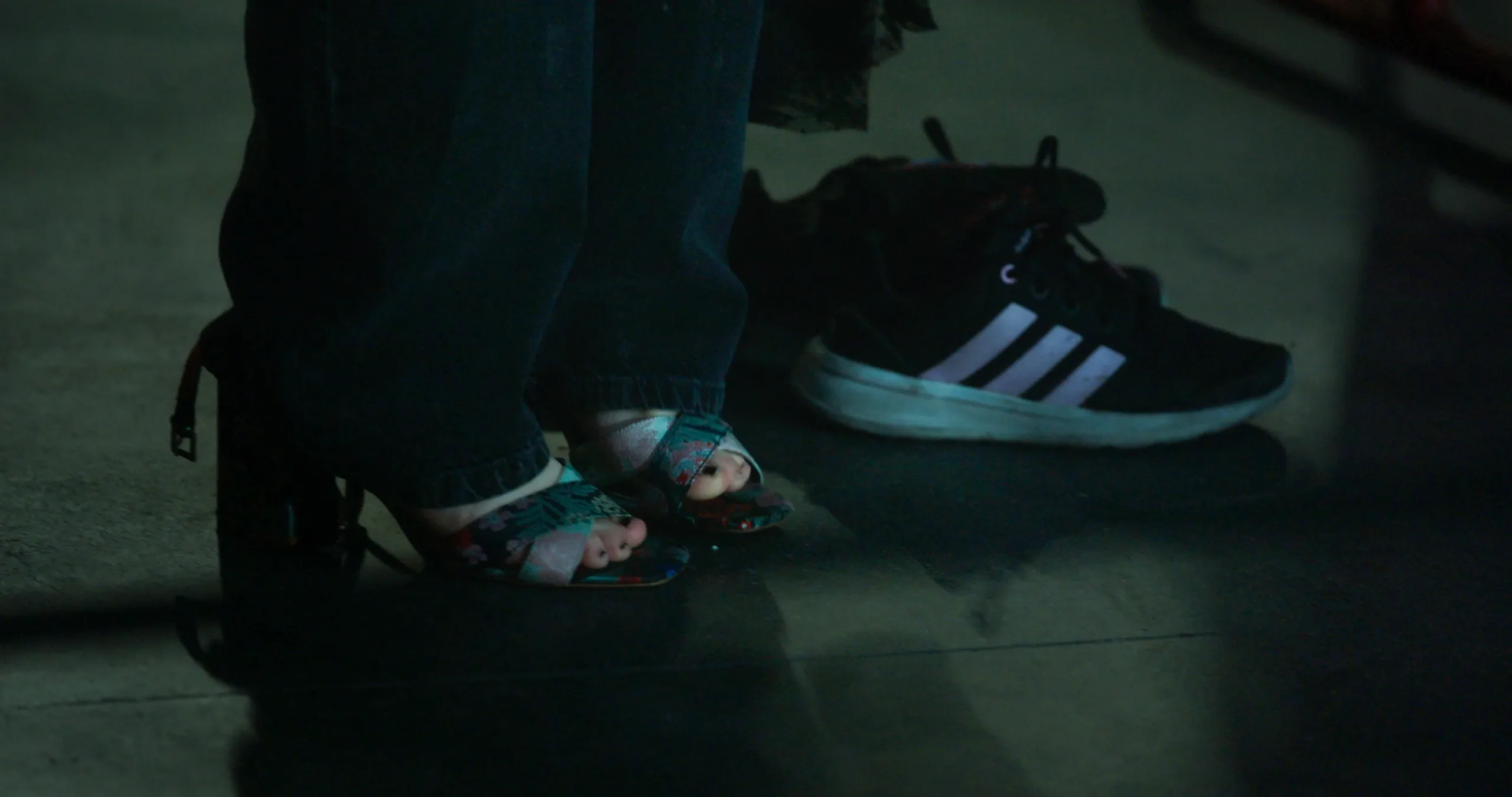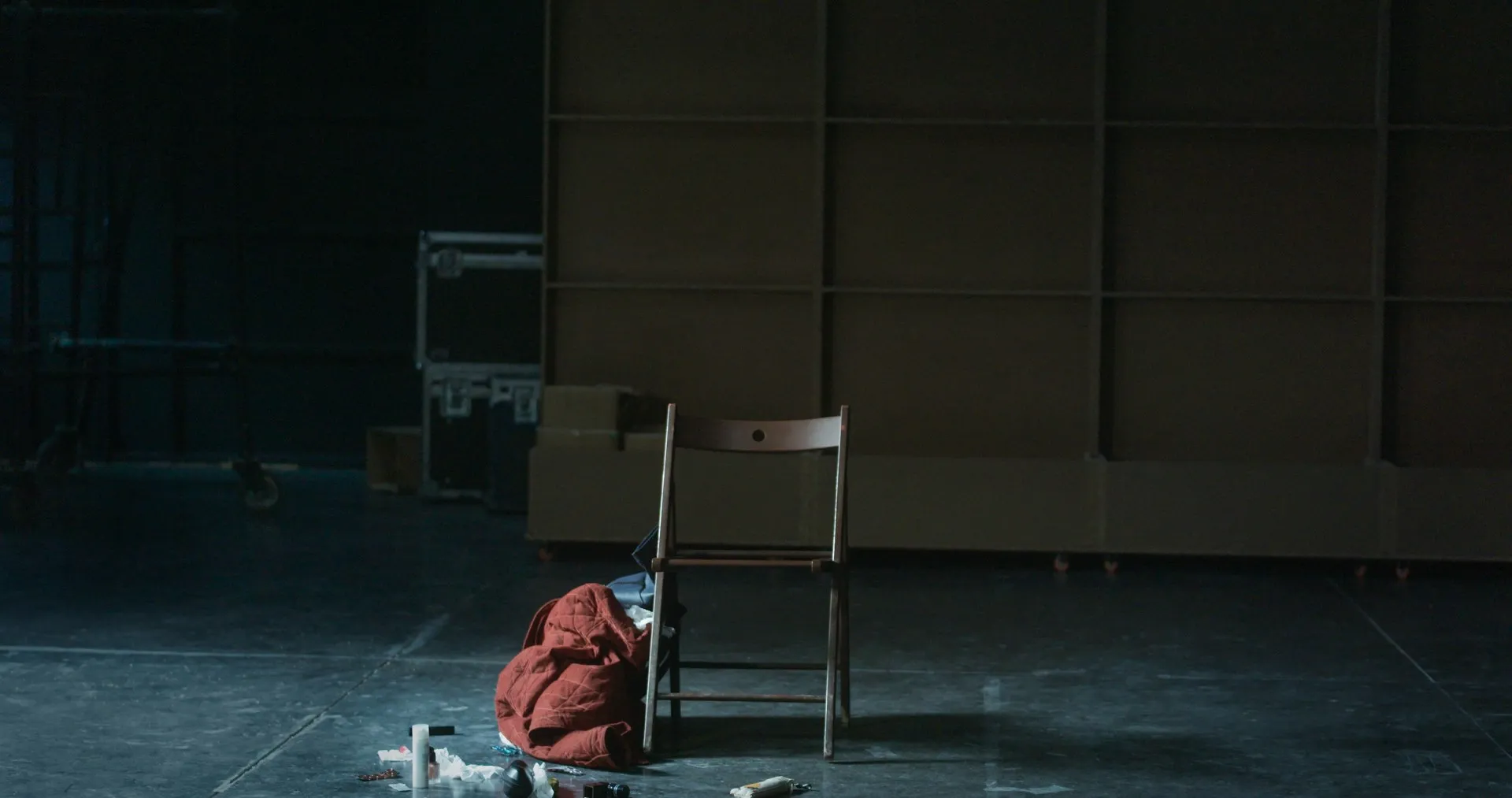A man’s voice drifts through darkness, summoning hopeful faces into a makeshift arena where dreams and dread collide. The camera never reveals his countenance—only the trembling outlines of actresses seated beneath a lone, harsh lamp in an otherwise empty studio. What begins as a routine casting for One Thousand and One Nights mutates into a silent contest of wills, each whispered instruction carrying latent threats.
Mehrnoush Alia revisits her 2015 short Scheherazade here, stretching its skeletal blueprint into a feature debut that feels at once ancient and urgent. The staging is stark: a single chair becomes throne, trap and confessional all at once. Each performer arrives bearing her own tale—of exile, of ambition, of memory too painful to voice—yet all share the same perilous spotlight.
Storytelling emerges both shield and weapon, an act of creation that may save or shatter. Through this austere prism, Alia interrogates what it costs to speak one’s truth when the unseen arbiter holds the power to erase it. The film’s raw geometry and relentless focus demand that we, too, confront our complicity in the gaze.
Echoes of Scheherazade: A Ritual in Repetition
The film unfolds like a whispered parable, its structure recalling Scheherazade’s nightly storytelling. Each audition becomes a chapter, identical in setting yet transformed by the individual who claims the chair. The director’s unseen voice assumes the role of a jealous king, demanding new tales to justify a woman’s survival. Repetition here is not monotony but incantation—a ritual that exposes fresh fissures in power’s veneer.
Hope arrives on silent feet. A young woman who endured nights on cold pavement steps forward with trembling resolve. Her story of escape is half prayer, half defiance. Soon after, the director’s former partner appears, her measured composure cracking under unspoken grievances. The tension shifts when casual questioning curdles into personal excavation—what began as a request for a monologue morphs into invasive probing. Truth and performance blur: an actress weeps as memories bleed into fiction. The final turning point arrives without fanfare. A staged scenario spirals into chaos, and the screen’s illusion collapses under its own artifice.
At the heart lies a study of leverage and surrender. Ambition becomes a bargaining chip, storytelling a double-edged sword. Each performer wields her narrative as both shield and weapon, yet the unseen director holds the ledger. The film’s design implies that to speak is to risk self-annihilation. Those who dare to recount trauma do so at the edge of erasure.
Pacing mimics a tightening coil. The early symmetry of ritualized entry gives way to uneven rhythms—pause and silence accumulate like sediment, magnifying every uneasy glance. Moments of stillness ache with expectation. When the director’s voice returns, it carries the weight of all that has been left unsaid. In these interstices, the audience becomes witness, complicit in a game without rules.
Portraits Under the Gaze
Mohammad Aghebati’s voice drifts like a dark promise. Unseen, he occupies every corner of the frame, shifting from genial encouragement to sharp command. His tone resembles a benevolent scholar at first—then a predator testing its prey. By keeping him off-screen, Alia forces us to imagine his face, his eyes, his subtle smile or cruel glare. We feel the weight of his authority without seeing the man himself, as if the camera has become an extension of his will. His presence becomes a philosophical question: can power exist when hidden?
The ex-wife steps into this circle of light like a veteran philosopher confronting an old pupil. She counters his assumptions with measured defiance, each word recalling shared history and unspoken betrayals. Opposite her sits the runaway, whose raw eagerness trembles on her lips. She speaks with the hunger of necessity, willing to risk anonymity and cold nights for a fleeting chance at expression. Their stories collide: one worn by experience, one unscarred yet fragile, both offering lessons in survival under scrutiny.
Firoozeh—the seasoned actress—emerges next, eyes steady as a mountain’s edge. She names the hidden hazards of this test, reminding us that wisdom often arrives as resistance. Her quiet defiance feels like a silent manifesto, challenging the unseen gaze. Around her, younger candidates bring a patchwork of voices: tales of loss, desire, survival. Each new presence unsettles hierarchy with a single truth: that every speaker holds power in her words.
Acting here is a study in restraint. A flicker of an eyebrow, a breath held too long, a sudden tilt of the head—small gestures carry entire worlds of fear and courage. When one pauses mid-word, the silence tastes electric. Together, the performers build a living mosaic of tension, drawing us into their shared ordeal, pushing us toward questions we cannot ignore—about consent, about agency, about the stories we tell to stay alive.
Light & Void: The Studio as Crucible
A single lamp hovers above the audition floor, its cone of illumination carving out shards of truth from the surrounding darkness. Shadows pool around the edges, cloaking the director’s presence in mystery even as his voice commands the space. The high-contrast lighting feels like a philosophical experiment: what survives exposure, and what collapses under scrutiny?
The camera drifts on handheld limbs, refusing the comfort of static observation. Long, unbroken takes track the actresses’ faces as they shift from hope to hesitation. There is no escape from the frame. Walls dissolve into blackness, leaving only eyes and gestures to carry the weight of unsaid fears. Tight compositions force us into proximity with trembling shoulders and braced spines—bodies caught between assertion and submission.
Alia chooses absence over ornamentation. The studio floor wears its dust like a memory of neglect. A lone chair stands at center stage, its wear echoing the bruises left by power’s imprint. A single piece of fabric—sometimes a veil—becomes both costume and burden, its folds tracing the outline of cultural binds and personal hesitations. In this void, every object acquires a glint of meaning.
Repetition emerges as motif: the chair appears in shot after shot, its stillness a counterpoint to rising tension. Corners of the room frame each performer in geometries that recall cages or confessionals. Through these visual motifs, Alia poses an unspoken question: when the space itself is weaponized, where can agency reside? The emptiness around the actresses becomes a vacuum that amplifies every heartbeat, every faltering syllable, and leaves us wondering which will crack first—their resolve or the silence itself?
Tension Through Time: The Fragmentation of Space and Self
The editing of 1001 Frames mirrors its thematic structure: fractured, unsettling, and deliberate in its manipulation of time. The film’s rhythm is composed of prolonged takes—long, suffocating pauses where each actress’s gaze or gesture hangs heavy in the air. These moments are suddenly punctuated by sharp cuts, jolting the viewer from the stillness into a whirl of discomfort. The effect is disorienting, as though the ground beneath us shifts without warning, mimicking the actresses’ descent into a psychological labyrinth.
The pacing builds slowly, like the tightening of a noose, drawing the audience into a false sense of order through structured interviews. As the questions grow more invasive, the tension escalates into a psychological crescendo. The shift from formal casting to intimate probing feels less like an unfolding narrative and more like an existential unraveling. Silence stretches, hanging in the air like an accusation, demanding that we confront the discomfort that the characters themselves cannot avoid.
Time itself becomes a tool of power. Rapid-fire questions compress the moment, creating a stifling sense of urgency. Yet, in the quiet moments of refusal or breakdown, time stretches painfully, elongating the suffering of the women. Each prolonged pause is a mirror to the actress’s internal struggle, and we—unwilling witnesses—are forced to linger in the same uncomfortable space, bound by the director’s silent will. The uneven pacing is a mirror of their emotional roller-coaster, drawing us into complicity, complicit not just in their suffering but in the very voyeurism that makes it possible.
The Silence Between Words: Sound as Power and Absence
The director’s voice, ever-present but unseen, oscillates between a controlled calm and an insidious demand. It shifts like the winds of authority, moving from a dispassionate command to an almost cruel provocation. Mic’d off-screen, his words carry a haunting weight, each syllable a thread in a web that tightens without warning. Echo and reverb distort spatial reality, making the room feel both claustrophobic and distant, as if the actress and audience alike are caught in a soundscape suspended outside of time.
In the absence of music, the ambient noises—the scrape of shoes against the floor, the quiet shift of chairs, the sharp intake of breath—become a dissonant orchestra. These sounds are not incidental but amplified, as though the world itself conspires to remind us of the fragility of these bodies, held together by nothing but their will to endure.
Sound is both absence and presence, the silence between breaths more oppressive than any crescendo. The lack of a score magnifies every small, organic sound—the rustle of fabric, the groan of a door opening—each one a subtle reminder of vulnerability. In the vast emptiness of the studio, these noises underscore the slow suffocation of autonomy, the quiet submission that reverberates in the air.
Veils and Voices: The Unseen Threads of Control
The veil in 1001 Frames is not merely a piece of fabric; it is both shield and shackle, a symbol that weaves together identity and oppression. In moments of tension, the veil’s presence shifts between cultural signifier and instrument of control. It is worn to protect, to conform, but also to conceal the body from the gaze of power. When one actress removes it in defiance, her action speaks as loudly as the words she has yet to say. When others are compelled to don it, the veil becomes a quiet, enforced submission, a reminder of the boundaries that restrict and define them.
This dance with fabric mirrors Scheherazade’s own strategy of survival—storytelling not only as an art but as a means of evading death. In Alia’s inversion, however, the casting process itself becomes a grotesque echo of the tale: what was once a clever subversion of authority transforms into an exercise in domination. The director’s power is wielded with surgical precision, coaxing truths from the actresses that slowly begin to erode their autonomy. Storytelling becomes a tool not of liberation, but of exploitation.
Layered within the film’s socio-cultural framework is a biting critique of the patriarchy that governs Iranian society and its film industry. The #MeToo resonance, subtle yet undeniable, underscores a universal truth: in oppressive systems, power becomes a commodity, and the human body is the currency. The sparse references to Iran’s strict laws and honor codes only serve to universalize this tale—1001 Frames is not simply a portrait of one society, but a cautionary tale for all.
Full Credits
Director: Mehrnoush Alia
Writer: Mehrnoush Alia
Producers: Mehrnoush Alia, Mohammad Aghebati, Sina Sharbafi
Cast: Mohammad Aghebati, Mahin Sadri, Leili Rashiri, Parastoo Ghorbani, Behafarid Ghaffarian, Avin Tafakori, Aisan Ghanbari, Shayesteh Sajadi
Director of Photography (Cinematographer): Hamed Hosseini Sangari
Editor: Mehrnoush Alia
Composer: Ava Rasti
The Review
1001 Frames
1001 Frames is a haunting exploration of power, exploitation, and the cost of storytelling. Mehrnoush Alia’s minimalist direction and sharp focus on psychological tension force the viewer into uncomfortable complicity, exposing the fragility of autonomy within oppressive systems. With a powerful ensemble cast and a chilling critique of patriarchy, the film transcends its cultural specificity to become a universal commentary on the dangers of unchecked authority. Alia’s debut is uncomfortable, compelling, and unflinching in its portrayal of exploitation.
PROS
- Intense psychological tension and slow-building dread.
- Powerful performances, particularly from the ensemble cast.
- Minimalist direction and cinematography that heighten the film’s claustrophobic atmosphere.
- Thoughtful use of silence and sound to amplify discomfort.
- Strong thematic exploration of power, exploitation, and gender dynamics.
CONS
- Pacing may feel slow for some viewers due to its deliberate build-up.
- Sparse narrative action may be challenging for those seeking more traditional storytelling.
- Some may find the lack of closure or resolution unsettling.









































